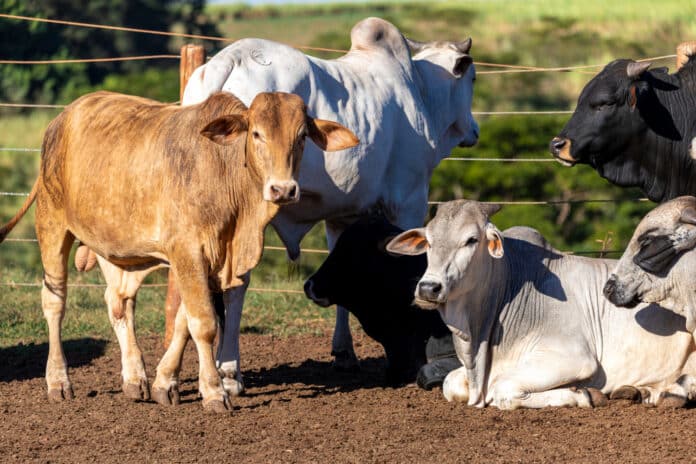Cattle farming is a major source of worldwide food production and livelihoods impacted by climate change. The largest form of mammalian biomass on Earth is livestock. It plays an important role in human well-being by directly contributing to food security and nutrition, supporting crop production, supplementing income, providing employment, and fulfilling social or cultural needs.
Heat stress is a massive issue in animal husbandry, costing as much as USD 1.7 billion in the United States alone, mainly in the dairy industry. In tropical countries, it will become more challenging due to high emissions. However, reducing emissions and limiting cattle expansion could reduce impacts by 50-84%.
According to a new study, more than 1 billion cows worldwide may experience heat stress by the end of the century if carbon emissions remain high and environmental protection remains low.
This indicates that cow farming across most of the world, including Central America, tropical South America, Equatorial Africa, and South and Southeast Asia, would experience potentially catastrophic heat stress. The study also discovered that rapidly reducing emissions while maintaining present cow production levels would reduce these impacts by at least 50% in Asia, 63% in South America, and 84% in Africa.
Extreme heat harms cattle in various ways, particularly when combined with high humidity. It decreases fertility, slows calves’ development, and can lead to more deaths. It also affects milk production in dairy cows, all of which influence the profitability of livestock farming, affecting animal welfare and farm income.
Researchers from the Universities of Cape Town, KwaZulu-Natal, and Chicago examined current heat and humidity conditions worldwide to predict how they may affect cattle in future decades based on differing emissions and land usage levels.
The researchers project that If future carbon emissions are high, nine out of ten cows will experience 30 or more days of heat stress yearly. More than three out of ten will share it all year by the end of the century. While tropical nations will be the most affected, many other portions of the planet, including Europe and North America, will face multiple months of heat stress yearly. Some parts of Japan, Australia, and Mexico, among others, will have 180 or more heat stress days each year.
Farmers will be forced to adjust to these new conditions due to rising temperatures and humidity by installing ventilation or air conditioning for the animals or switching to heat-adapted cattle breeds. However, these measures will become increasingly expensive with future warming. They will only be possible in some places, meaning cattle farming could no longer be viable in areas where it is a significant occupation.
Dr. Michelle North, veterinarian and researcher at the University of KwaZulu-Natal, said, “Our study clearly shows that cattle are increasingly exposed to temperatures that impact their welfare, reducing growth and production and potentially leading to increasing deaths in many parts of the world that are currently seen as prime cattle-farming territory. It is also important to remember that we are only looking at heat stress here and do not consider changes to water availability.
The experts emphasize that actions made now will have far-reaching consequences in the future decades. Reduced consumption of beef and increased consumption of plant-based foods would lower customer demand for cow products. This would put fewer animals in danger of heat stress while simultaneously allowing for forest preservation and the restoration of degraded lands, which might help limit temperature rise.
Dr Christopher Trisos, ecologist and climate change researcher at the University of Cape Town, said, “We’ve seen the deadly impacts for humans of climate change intensifying heatwaves, but the animals that feed us are also at severe risk from heat. We need to act now to limit the risk.”
In conclusion, Cattle production expansion through cutting down or burning tropical forests is unsustainable and worsens climate change. It will undermine the welfare of hundreds of millions of cattle exposed to heat stress. Adapting livestock farming systems to reduce heat stress impacts is essential. Reducing cattle products in diets can limit future expansion and protect forests, limiting global warming.
Journal Reference:
- James A Franke, Michelle A North, et al. Global risk of heat stress to cattle from climate change. Environmental Research Letters. DOI: 10.1088/1748-9326/aceb79
